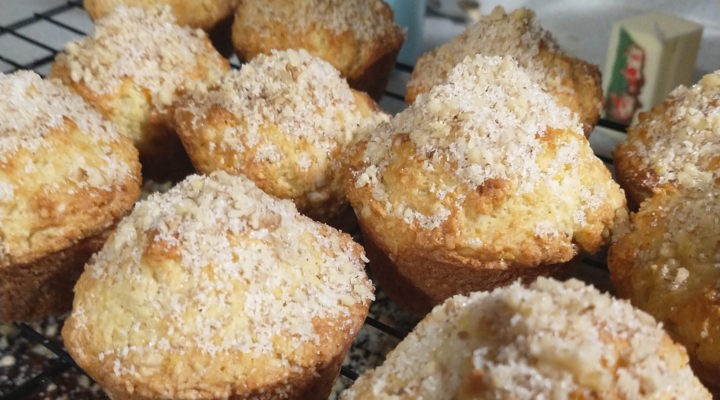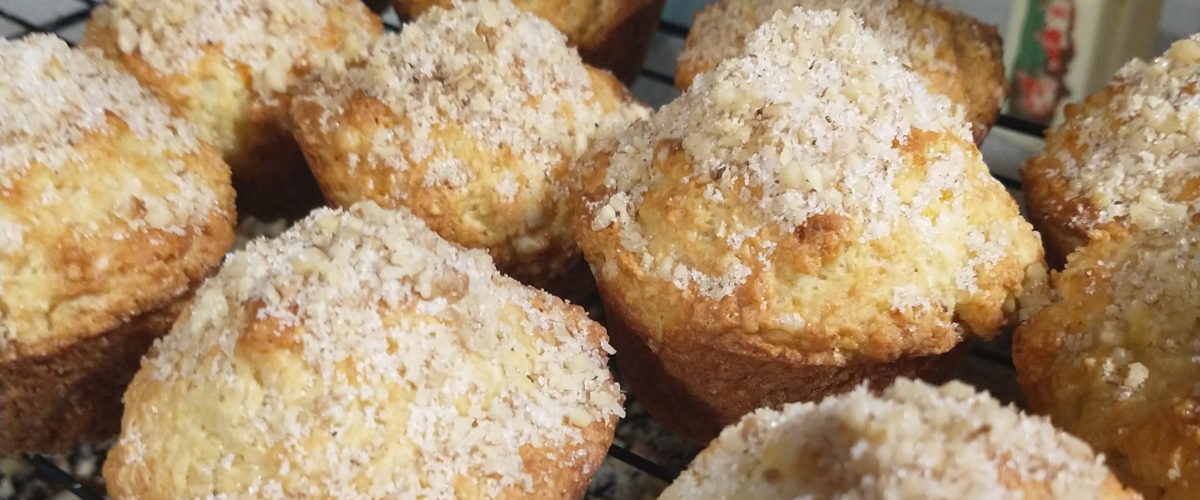In rural New England, winter comes not only with a downpouring of snow but with a heavy dose of loneliness and isolation. While the wondrous “white stuff” is a nuance that my spouse and I still get excited about, that’s certainly not the case for most of my neighbors.
A recent conversation with one proved as much, as she told me that because of her remote location on the mountain “loneliness is a struggle.” Like any good pastor, I listened and acknowledged her concern.
Yet my pre-pastor default setting when encountering authentic conversation is to slide in a bit of humor. I told her how I actively seek out loneliness — because that’s what you have to do when you have a toddler.
Just to be clear, I love my “spirited” daughter, but if I want to string coherent thoughts together, I have to be creative in my approaches to do so. For me, this means rising around 4 a.m. in order to embrace three to four hours of self-imposed loneliness while the rest of the house sleeps.
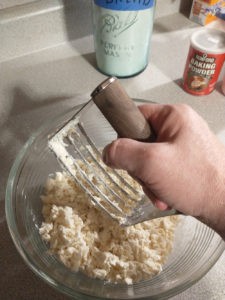 When I first started making this alone time a regular occurrence, it felt a lot like my years in seminary. I’d rise early to finish a paper or complete a reading assignment. With slippers shuffling and robe trailing, I’d stumble into the kitchen, grind coffee beans, and boil water for the French press. It was the practice of stringing together the actions needed to produce liquid caffeine that offered me my first glimpse of embodied prayer. Up until then, my habit was to give a small “thanks” to the Creator when I took my first sip, but I discovered my thanks and praise had the potential to start much earlier if I wanted to truly embody it.
When I first started making this alone time a regular occurrence, it felt a lot like my years in seminary. I’d rise early to finish a paper or complete a reading assignment. With slippers shuffling and robe trailing, I’d stumble into the kitchen, grind coffee beans, and boil water for the French press. It was the practice of stringing together the actions needed to produce liquid caffeine that offered me my first glimpse of embodied prayer. Up until then, my habit was to give a small “thanks” to the Creator when I took my first sip, but I discovered my thanks and praise had the potential to start much earlier if I wanted to truly embody it.
That illumination of embodied prayer was a small seed and one that’s still growing.
I’m blessed to be afflicted with the curse of needing to read multiple books at a time. In my rotation now, I’ve found myself going back through Michael Twitty’s The Cooking Gene. Twitty’s work is less cookbook than an anthropological-infused offering of both his own genealogy, spiritual journey and his call to make the food he prepares as his “flag” for others to see and experience.
Food is a means of engagement for Twitty. He uses it often in tension-filled spaces where he interprets by reenacting the role of Black cooks during slavery in plantation settings like Stagville, N.C., as well as locations ranging from Colonial Williamsburg to James Madison’s Montpelier.
While reading a chapter one morning, I gleaned from Twitty a story of African folklore involving cooking pots. In his telling, cooking pots were “alive,” and if not treated properly, would sprout legs and scatter away from the hearths that didn’t appreciate them. Later Twitty writes of the kitchen table as a place where truthful conversations were possible and describes some in heartfelt detail. In between his descriptive storytelling, he mentions the food present in those settings — greens, cornbread, black-eyed peas — the same food that was present at many meals in my own Southern upbringing.
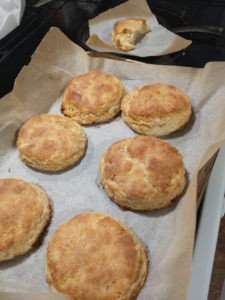 Twitty’s words moved me one morning, and what I mean is they physically moved me. I found myself reaching for a bookmark after a particular paragraph and rising from the comforts of the well-worn floral chair that sits in the library of the parsonage. My spirit, with two cups of coffee fueling it, started down the narrow steps. My mind was buzzing, but my body still needed the balance of hands to grasp and lean upon the railing during my descent into the kitchen below.
Twitty’s words moved me one morning, and what I mean is they physically moved me. I found myself reaching for a bookmark after a particular paragraph and rising from the comforts of the well-worn floral chair that sits in the library of the parsonage. My spirit, with two cups of coffee fueling it, started down the narrow steps. My mind was buzzing, but my body still needed the balance of hands to grasp and lean upon the railing during my descent into the kitchen below.
I made a beeline for the low freezer where, after moving several pints of Ben & Jerry’s Netflix and Chill out of the way, I finally saw what I was looking for — a bag of frozen turkey bones. My mother-in-law had stored them safely away during pre-pandemic times.
Along with the bones, I grabbed several carrots for chopping, a generous amount of garlic cloves, an onion that was immediately quartered, and a couple of bay leaves.
But something else was missing. My spirit took me out into the wilderness of the backyard and the herb spiral that still supported batches of parsley. Kissed by the icy dew and washed in the sink, parsley and the rest of the needed ingredients made their way into a large stock pot. With water poured high, my simple creation was placed on one of the stove’s eyes.
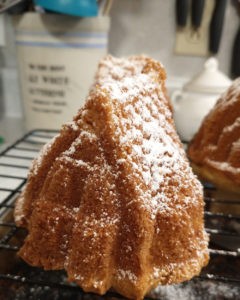 My prayer that morning was to answer a prophetic question. Can these bones live again? These words were asked by the Lord to the prophet in the famous Valley of Dry Bones exchange in the 37th chapter of Ezekiel. When asked, the prophet replied, “Sovereign LORD, only you know.” As I stood above the stove watching the contents of my pot move and the ice fall off those frozen dead bones, I too received the same answer Ezekiel got — wait and see (especially when that water gets boiling).
My prayer that morning was to answer a prophetic question. Can these bones live again? These words were asked by the Lord to the prophet in the famous Valley of Dry Bones exchange in the 37th chapter of Ezekiel. When asked, the prophet replied, “Sovereign LORD, only you know.” As I stood above the stove watching the contents of my pot move and the ice fall off those frozen dead bones, I too received the same answer Ezekiel got — wait and see (especially when that water gets boiling).
Those bones came back to life as I was making stock from them. The frozen meat left for naught was being repurposed. Heated, cooked and breaking away with an accompanying aroma only flavorful fat can produce.
Right when the water began to boil, I felt the need to submerge myself in the intoxicating smell. I leaned over the pot, placing my head under the hood of the range. With eyes closed and head slightly bowed, I found myself in a state of prayer. I found myself in a place that felt ancient and old. A place that offered connection to others both living and dead.
“With eyes closed and head slightly bowed, I found myself in a state of prayer.”
I breathed in and picked up the smell of life wafting off those bones. I picked up hints of parsley and onion. I sensed the heat rising up to meet my face, leaving moisture on my cheeks. I stayed in this position only for a minute or two, and when I opened my eyes, my glasses were saturated with steam. This prevented me from seeing right away, resulting in what I imagine the Apostle Paul underwent when he encountered the divine, describing his view as being holy distorted by a glass darkly.
Slowly my vision returned, and as I stared at the pot I knew two things: I wanted to cook more even if it meant waking long before the crack of dawn, and I wanted to start seeing my undertaking of cooking and baking as a contemplative practice and a way to address the nostalgia pains of my Southern roots.
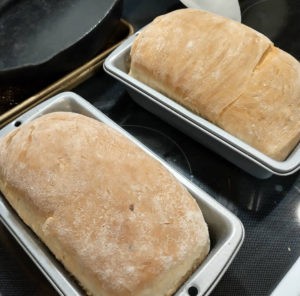 Be it soup stock, vinegar pie or biscuits, my kitchen has become a place of experiment all for the purpose of preparing something I can share later with others. I have discovered the pouring of self into a dish of food, a loaf of bread or a cup holds meaning to me.
Be it soup stock, vinegar pie or biscuits, my kitchen has become a place of experiment all for the purpose of preparing something I can share later with others. I have discovered the pouring of self into a dish of food, a loaf of bread or a cup holds meaning to me.
My spouse made an observation as we sat and enjoyed coffee one morning. I asked her if she could think of anyone who might enjoy the dinner rolls currently baking in the oven. She suggested a family in our village and then added, “It seems like you’re seeing more people now than before the pandemic.”
She was right.
Of course, visitation isn’t the same. My “seeing folks” is little more than a few minutes of conversations separated by several feet and glass doors, but I am visiting more people because I’m cooking and baking more.
I’ve lost count of the consecutive days I’ve dropped off biscuits to this neighbor or muffins to that one. It’s a habit now. Feeding those around me has become a rewarding habit. It’s rooted in a sacramental understanding. It’s a prayer of hope for the breaking of bread to be a continuation of breaking of hindering prejudices. It’s a prayer that the sharing of a cup is a continuation of the sharing of stories and experiences.
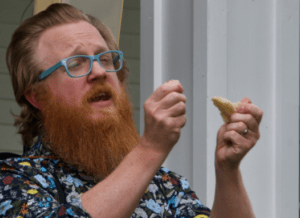 Justin Cox serves as senior pastor of the United Church of Lincoln, Vt. He received his theological education from Campbell University and Wake Forest University School of Divinity. He enjoys reading, amateur gardening and helping his spouse, Lauren, chase their daughter, Violet, all over the village of Lincoln. He is an ordained minister affiliated with the Cooperative Baptist Fellowship and is currently enrolled in the doctor of ministry program at Pittsburgh Theological Seminary.
Justin Cox serves as senior pastor of the United Church of Lincoln, Vt. He received his theological education from Campbell University and Wake Forest University School of Divinity. He enjoys reading, amateur gardening and helping his spouse, Lauren, chase their daughter, Violet, all over the village of Lincoln. He is an ordained minister affiliated with the Cooperative Baptist Fellowship and is currently enrolled in the doctor of ministry program at Pittsburgh Theological Seminary.

